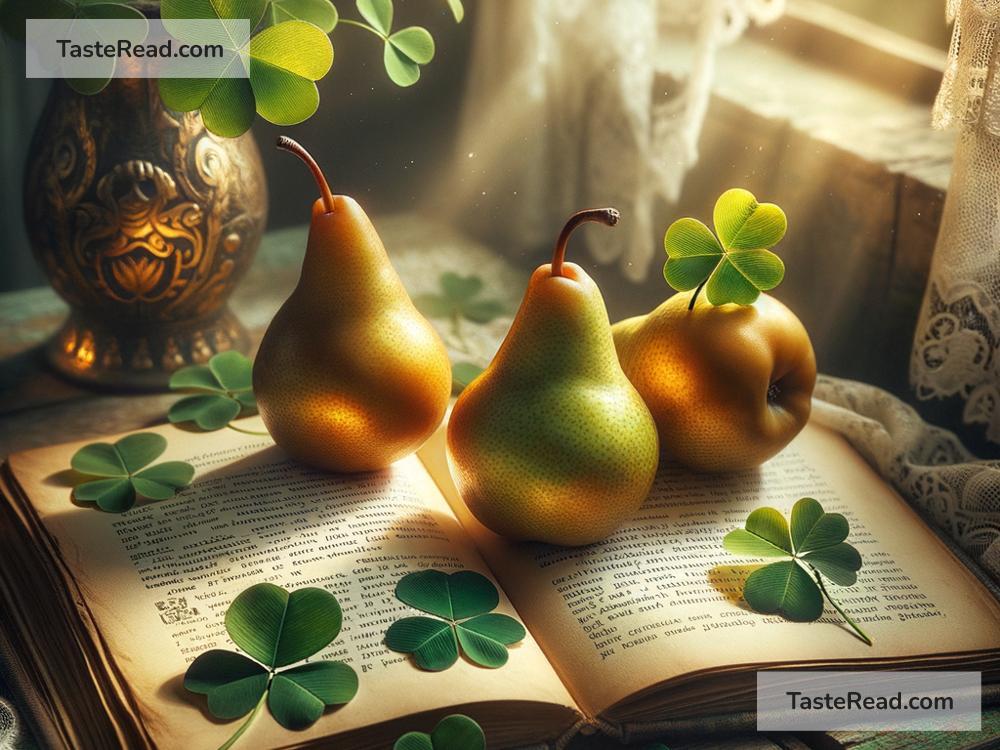The Mythical Connection Between Pears and Luck
Fruits have always played a significant role in myths, legends, and cultural beliefs. Apples have been tied to knowledge and temptation, oranges with good health, and figs with abundance. But what about pears? These sweet, juicy fruits are more than just delicious—they’re also shrouded in stories that link them to luck, prosperity, and even wisdom. Let’s explore the mythical connection between pears and luck, using simple language to make the story easy to follow.
Pear Trees and Ancient Wisdom
Pears have a long history that goes back thousands of years. They were first cultivated in regions of Europe and Asia, and ancient civilizations quickly recognized their importance. Pear trees are known for their strength and longevity, often living for many decades. These qualities led people to associate pears with wisdom, steadfastness, and resilience.
In mythology, the pear tree symbolized knowledge passed down through generations. The Greeks believed that pear trees represented the wisdom of the earth, a connection to the divine, and the ability to persevere through hard times. People would plant pear trees as a symbol of hope and renewal, believing the tree brought protection and good fortune to its caretakers.
Pears in Chinese Culture: A Symbol of Luck and Harmony
In Chinese culture, pears have a deep connection to luck and harmony. While pears are often associated with prosperity and good fortune, their symbolism also carries a bit of a warning. In Mandarin Chinese, the word for “pear” (梨, lí) sounds very similar to the word for “separation” (离, lí). Because of this, pears can have a dual meaning: they are considered lucky, but they are also viewed as a fruit that can signal breakups or separations if shared improperly.
To avoid bad luck, it is said you should never split a pear with a loved one—this act could symbolize an oncoming separation. On the other hand, planting a pear tree or giving pears as a gift is seen as a gesture of goodwill and a wish for enduring harmony. For families, pear trees planted near a home are thought to bring steady relationships, peace, and luck to the household.
This connection between pears and harmony fits well with the tree’s nature. Pear trees grow gracefully, with beautiful blossoms in the spring and fruitful harvests in the fall. They’re seen as a reminder that luck often comes not in sudden bursts but in steady, dependable ways.
Pears in Folklore Around the World
The lucky symbolism of pears isn’t limited to Chinese culture—it appears in many traditions worldwide. In European folklore, pear trees were considered magical. People believed that planting a pear tree in your yard could protect the home from evil spirits and bring blessings to the family. Some even thought that eating a pear under a full moon would bring good luck and help make your wishes come true!
In Japan, there’s a legend tied to the pear tree in the city of Nara. According to the story, a man once saved a pear tree from being chopped down, even though the villagers wanted to get rid of it. Later, the man experienced incredible luck in his life, including financial success and strong health. From that day forward, the Nara pear tree became a symbol of gratitude and luck. Even today, pears are eaten as a sign of good fortune in Japan.
Pears and Prosperity
Because pears are such a delicious and hardy fruit, they’ve often represented abundance and prosperity. They grow in many regions around the world and ripen best when cared for patiently, making them a symbol of reward that comes after effort. This belief is mirrored in the saying, “When the pear is ripe, success is near.” Pears are often used in art and literature as symbols of wealth or good harvests, reminding people to stay optimistic and work toward their goals.
In some countries, pears are also featured in special dishes cooked during celebrations. For example, caramelized pears or pears simmered in wine are enjoyed in Europe during Christmas or New Year’s festivities. These dishes represent sweetness and prosperity for the coming year, blending ancient traditions with modern culinary practices.
Pears in Modern Times
Today, pears may not be as mystical as they were in ancient times, but their role as a symbol of luck and prosperity still exists. Many people still consider planting a pear tree in their garden or gifting pears as a meaningful act. Pears are also used in wedding decorations and ceremonies to symbolize enduring love and harmony.
Additionally, pears are a reminder that luck is something we cultivate over time—just as pear trees need care and patience to produce their fruit. Whether it’s through folklore, traditions, or simple acts of kindness, pears continue to inspire people to see the sweeter side of life and welcome good tidings.
Final Thoughts
The connection between pears and luck may be rooted in myths and cultural beliefs, but it reminds us of something universal: the power of hope, harmony, and perseverance. Pears have flourished as symbols of fortune not just because of their taste, but because they represent the fruits of effort, patience, and care. Whether you believe in their mythical meaning or just love them as a tasty treat, pears carry a message of optimism and the promise of better days ahead.


